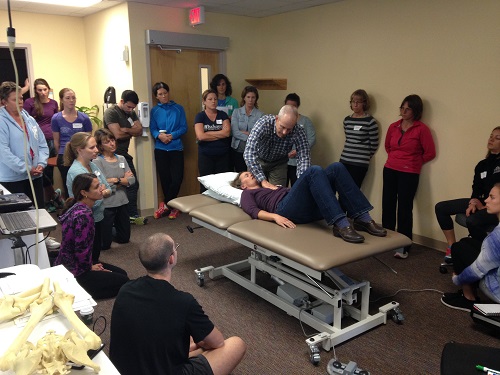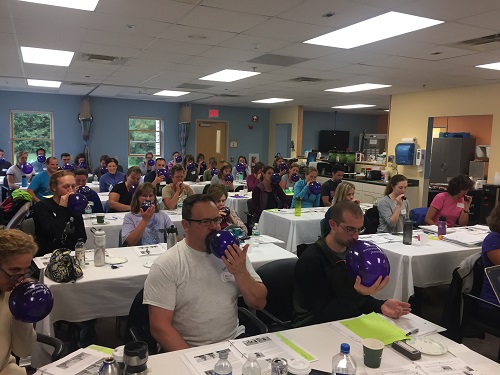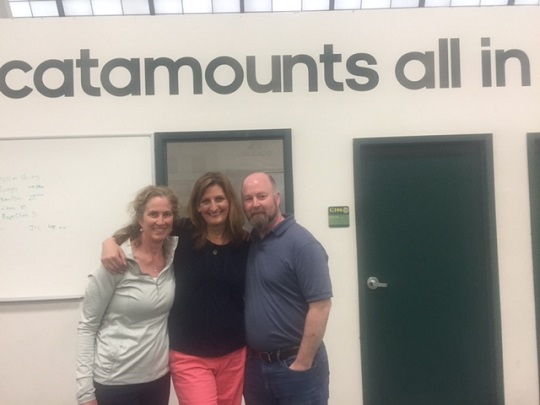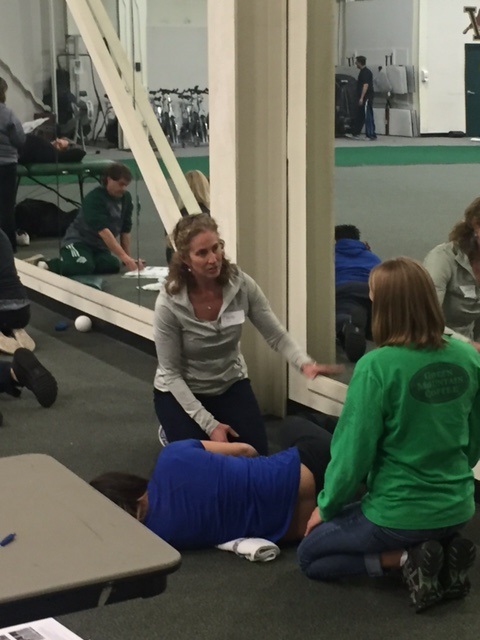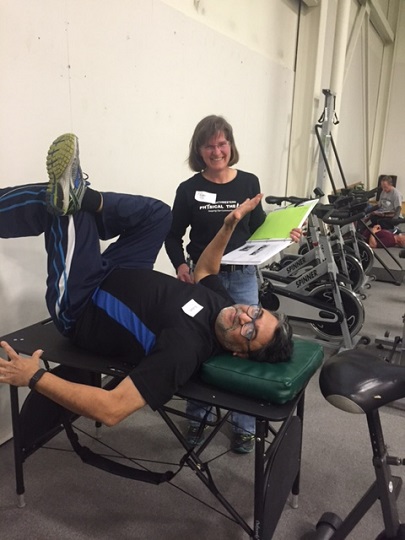Jen Poulin, one of PRI’s veteran faculty members, told me that this group of attendees would be great to present to. She was spot on and this group assisted by Carolyn Weber, PT, PRC and Holly Spence, PT, PRC was most engaging and enthusiastic . There were physical therapists that either worked in a hospital setting, private practice or with local ski teams. Former ski racers, now turned physical therapists and mentors that were new to PRI got the concepts immediately and could see applications for their athletes as well as general populations. As always, the questions asked were intelligent and challenging backed by a strong drive to learn and explore new concepts and practical applications of a previously unknown science to many in the room. Also in attendance was a DC/PT, athletic trainers and strength and conditioning professionals. Vermont has a great audience and already has another PRI course scheduled for next year. Many thanks to the staff at Northwestern including Karen Staniels and Christy Cushing. Thanks again to Carolyn and Holly for your help!
